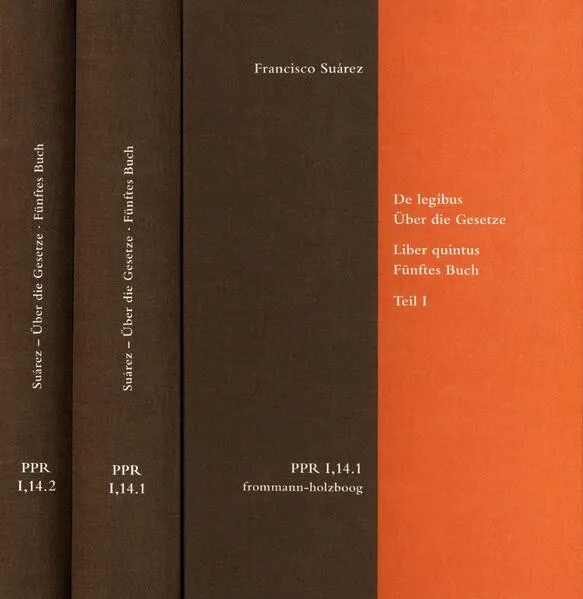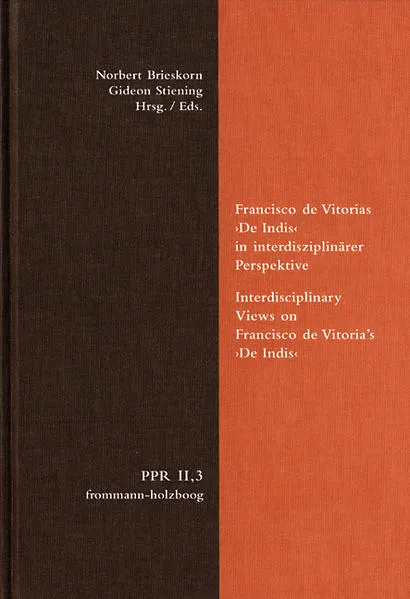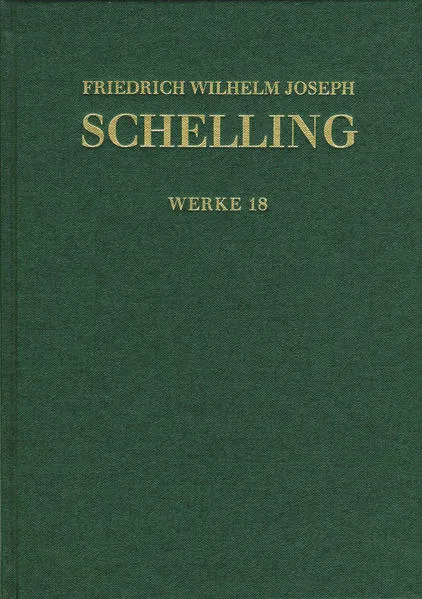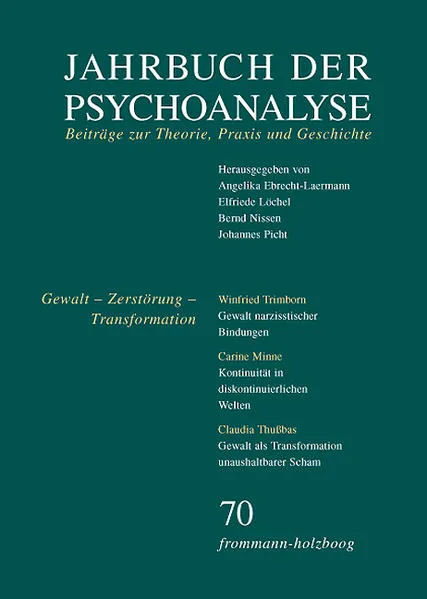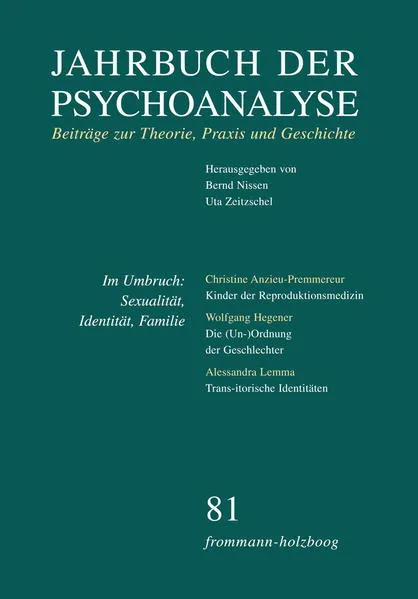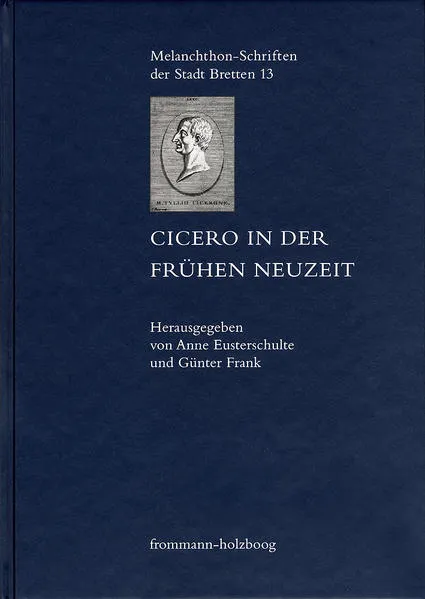
Günter Frank
Cicero in der Frühen Neuzeit
ISBN: 978-3-772-83084-6
400 Seiten | € 68.00
E-Book [Kindle]
Dieses Buch gehört zur Reihe Melanchthon-Schriften der Stadt Bretten und enthält ca. 2 Folgen.
Erscheinungsdatum:
12.04.2018
Sonstiges
Günter Frank
Cicero in der Frühen Neuzeit
Forschungen und Publikationen zu Marcus Tullius Cicero (106–43 v. Chr.) als antiken Autor, Staatsmann, Rhetor und Philosoph sind unüberschaubar. Anders sieht dies freilich hinsichtlich seiner Wirkungsperspektive aus, insbesondere in der Frühen Neuzeit. Dort ist die Präsenz seiner Schriften – von der Forschung bislang kaum beachtet – immens. Die vorliegenden Beiträge, hervorgegangen aus einem Symposium der 'Europäischen Melanchthon-Akademie' in Bretten, dokumentieren und analysieren die Spuren und die Wirkung von Ciceros Schriften in dieser Epoche. Der Band leistet damit auf diesem noch weitgehend unerforschten Feld Grundlagenforschung: Exemplarisch legen die Beiträge die historiographischen, literarischen bzw. literaturkritischen und rhetorischen Perspektiven der Cicero-Rezeption in der Frühen Neuzeit offen und nehmen besonders die Wirk- und Aneignungsformen der philosophischen Schriften bzw. ihrer theologischen Implikationen in den Blick.
There are vast amounts of research and publications on Marcus Tullius Cicero (106–43 v. Chr.) as an author in antiquity, a statesman, rhetor and philosopher. This is not however the case as far as his impact is concerned, especially in the early modern period. His writings in this time had an immense presence, which has previously not received much attention in research. The articles in this volume, the result of a symposium held by the ‹European Melanchthon Academy‹ in Bretten, document and analyze the traces and the impact of Cicero‹s writings in this era. Thus this book conducts fundamental research in an area which up to now had been largely unexplored. Using specific examples, the articles show the reception of Cicero in the early modern period from the perspective of historiography, literature, literary criticism and rhetoric and deal particularly with the forms of impact and appropriation which his works took as well as their theological implications.
There are vast amounts of research and publications on Marcus Tullius Cicero (106–43 v. Chr.) as an author in antiquity, a statesman, rhetor and philosopher. This is not however the case as far as his impact is concerned, especially in the early modern period. His writings in this time had an immense presence, which has previously not received much attention in research. The articles in this volume, the result of a symposium held by the ‹European Melanchthon Academy‹ in Bretten, document and analyze the traces and the impact of Cicero‹s writings in this era. Thus this book conducts fundamental research in an area which up to now had been largely unexplored. Using specific examples, the articles show the reception of Cicero in the early modern period from the perspective of historiography, literature, literary criticism and rhetoric and deal particularly with the forms of impact and appropriation which his works took as well as their theological implications.
Unterstütze den lokalen Buchhandel
Nutze die PLZ-Suche um einen Buchhändler in Deiner Nähe zu finden.
Bestelle dieses Buch im Internet
| Veröffentlichung: | 12.04.2018 |
| Höhe/Breite/Gewicht | H 24,1 cm / B 17,6 cm / - |
| Seiten | 400 |
| Art des Mediums | E-Book [Kindle] |
| Preis DE | EUR 68.00 |
| Preis AT | EUR 70.00 |
| Auflage | 1. Auflage |
| Reihe | Melanchthon-Schriften der Stadt Bretten 0 |
| ISBN-13 | 978-3-772-83084-6 |
| ISBN-10 | 3772830846 |
Über die Autorin
Dr. med. Gunter Frank, geb. 1963 in Buchen im Odenwald, ist niedergelassener Allgemeinarzt in Heidelberg und Dozent an der Business School St. Gallen. Er ist Autor mehrerer erfolgreicher Bücher wie: Unternehmensressource Gesundheit, Lizenz zum Essen, Die Mañana-Kompetenz, Schlechte Medizin oder zuletzt Karotten lieben Butter. Er engagiert sich in Fachgesellschaften und publizistisch für eine Medizin, die abseits von Ideologien und Wissenschaftsmissbrauch das Wesentliche nicht aus den Augen verliert, den relevanten Nutzen für den Patienten.
Diesen Artikel teilen
0 Kommentar zu diesem Buch
.... weitere Publikationen von frommann-holzboog
Leserunde
Echo aus dem Eis: Band 2 der Northern-Drift-Reihe - Aviation-Mystery in Eis und Dunkelheit
Bewerbungsfrist bis zum: 03.03.2026





